By Mojaloop Foundation Director Adama Diallo, Head of Partnership for the Next Billion Users project in Africa at Google
I was proud to present at the recent Women in Fintech Summit, organized by HiPipo under the Include EveryOne program, and in proud partnership with ID8, Crosslake Tech, ModusBox, Mojaloop Foundation, and the Level One Project. The Summit was held at the culmination of a week-long Women in FinTech Hackathon, where 15 women-led teams met to conceptualize and develop different financial inclusion products with a special focus on women, in areas such as payments, lending, saving, e-commerce, e-education, and e-agriculture, among others. Combined, the Women in Fintech Hackathon and Summit sought to generate interoperable financial inclusion solutions for women, by women.
Here are some of the important takeaways.
Disconnects in Bridging the Financial Inclusion Gap
We have seen how digital financial services can help bridge the gap to financial inclusion. Mobile wallets have made cashless transactions easier all over Africa, but there are two key barriers that we see in many economies, including Africa.
First is the lack of interoperability with mainstream financial providers such as banks, microfinance institutions, and other digital financial services providers, which keeps customers in silos and puts a limit on potential transactions — as well as on revenue.
Second, there is the expense of building out proprietary networks and systems, which means providers often end up charging high transaction fees — or not building anything for developing markets at all.
This disconnect is where the inherent costs of the financial system exist, which leads to excluding the bottom of the pyramid.
Mojaloop: Advancing Financial Inclusion
The situation in Africa presents a compelling challenge for which we believe Mojaloop offers a solution if adopted widely by more countries, systems integrators, aggregators, and other innovators.
In May 2020, Google, along with five other founding Sponsor member organizations, joined the Mojaloop Foundation, a charitable nonprofit organization dedicated to advancing Mojaloop’s financial inclusion mission. We share the Foundation’s vision of universal financial inclusion. We would like to empower organizations that create interoperable payment systems to enable digital financial services for all, to connect everyone to the global economy.
The Foundation’s open source software, Mojaloop, gives the industry a way past both of the barriers I mentioned earlier. It was designed with financial inclusion at its core, founded on inclusion principles and well-defined international financial inclusion standards that focus on expanding safe, affordable digital financial access to all.
Using the Mojaloop platform allows countries and even huge regions like the continent of Africa to be more involved in building the backbone of the technology’s source code. They can influence the platform’s strategy and leverage the efficiencies of a local and international development community, respond rapidly to security fixes anchored on system-wide fraud and security protection, and encourage their local technology communities to build what is truly meaningful and relevant to their countries.
Mojaloop brings a unique opportunity for African tech start-ups and developers to take part in building and shaping the payments systems of tomorrow for the continent. They can also help innovate for Africa and beyond. For example, if one country adds an innovative new feature, it will be relatively simple for other countries to add this feature as well. With many countries contributing to and using the same system, the benefits of the platform can be scaled up and thereby extend to everyone.
In addition, Mojaloop enables companies such as Google to do security reviews on the platform — finding and fixing any potential security problems — and scale this approach to benefit all participants through system-wide fraud and security protection, among other things.
Interoperability is the key to inclusive real-time payment models. In fact, the entire ecosystem benefits from it. By creating a system inclusive to everyone, governments collectively can save at least $110 billion annually, by reducing leakage in public expenditure and tax revenue. These added funds could help increase public investment in critical areas such as education, infrastructure, and healthcare. In addition, governments could gain approximately $40 billion annually.
Mojaloop in Action for Women
Let’s think of it this way: suppose there is a system that assists in routing payments directly from sender to recipient. Mojaloop fulfills this function. Because Mojaloop is open source and interoperable, everyone can build something amazing on top of it. Governments could use Mojaloop to deliver support payments to citizens right into their mobile wallets, for example.
By simplifying the payments infrastructure so as to allow connections to various platforms, Mojaloop helps local developers focus on innovating – such as building out a business-to-business payroll processing system that would allow companies to send part-time employees’ pay directly into their mobile wallets.
Out of the two billion workers in informal employment worldwide, over 740 million are women. Let’s consider the impact of women employees receiving their salaries in their mobile wallets in an interoperable Mojaloop-based system.
If customers can pay their bills directly from their phones, women with digital wallets can connect with their employers’ bank accounts and/or their children’s school accounts to complete monthly transactions, even if they are all on different platforms.
Mojaloop serves as a blueprint for how to simplify and reduce the cost of payment interoperability so that banks and other providers can achieve higher transaction volumes and remove the high fees and other barriers that prevent unbanked women with a mobile phone from using digital financial services. With open, inclusive real-time payment systems, anyone is empowered to receive a salary payment, send money to relatives’ wallets, make purchases, pay bills, and more, without the extra costs. And more importantly, this capability can help underserved women to become economically active. By including all, there are more opportunities for women, creating a ripple effect that will impact economies worldwide.
To watch the full line-up of speakers at the Women in Fintech Summit, visit YouTube or follow the conversation on #Womeninfintech on Twitter.


